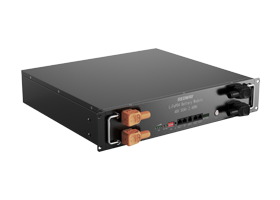Redway Power, a leading provider of battery solutions, has published an informative article titled “Can LiFePO4 Batteries Last 20 Years?” on their website. The article explores the lifespan of Lithium Iron Phosphate (LiFePO4) batteries and the conditions required for them to last up to two decades.
LiFePO4 batteries are known for their durability and longevity compared to other battery chemistries, making them an attractive option for a wide range of applications, from renewable energy systems and electric vehicles to backup power systems. However, the lifespan of LiFePO4 batteries can vary depending on several factors, including usage, storage conditions, and maintenance.
Redway Power’s article provides valuable insights into the factors that can impact the lifespan of LiFePO4 batteries and the steps that can be taken to ensure optimal performance and longevity. One key factor is the operating temperature of the battery. LiFePO4 batteries are most efficient and last the longest when operated within a temperature range of 20-25°C (68-77°F). When exposed to higher temperatures, the battery’s performance can be reduced, and its lifespan may be shortened.
The article also highlights the importance of proper maintenance, such as regularly monitoring the battery’s state of charge, and ensuring it is not overcharged or discharged. Overcharging can cause permanent damage to the battery, while discharging the battery too deeply can shorten its lifespan. Redway Power recommends using a battery management system to help ensure optimal performance and longevity.
Another factor that can impact the lifespan of LiFePO4 batteries is their depth of discharge (DOD). The DOD refers to the amount of the battery’s capacity that is used before recharging. Redway Power recommends a DOD of no more than 80% for LiFePO4 batteries to maximize their lifespan. Over time, repeated deep discharges can lead to a decrease in the battery’s capacity and overall performance.
Redway Power’s article also explores the role of cycling and calendar life in the lifespan of LiFePO4 batteries. Cycling refers to the number of times the battery is charged and discharged, while calendar life refers to the battery’s age, regardless of its usage. While LiFePO4 batteries are known for their longevity, their lifespan can be impacted by both cycling and calendar life. Redway Power recommends storing batteries at a 40-60% state of charge to minimize the effects of calendar life.
The article also provides an overview of the various applications where long-lasting battery storage is essential, such as in off-grid solar power systems, electric vehicles, and backup power systems. In these applications, the reliability and longevity of the battery are critical to ensure optimal performance and to minimize downtime and maintenance costs.
Overall, Redway Power’s article “Can LiFePO4 Batteries Last 20 Years?” provides a comprehensive overview of the factors that can impact the lifespan of LiFePO4 batteries and the conditions required for them to last up to two decades. With their commitment to delivering high-quality battery solutions and educational resources to their customers, Redway Power has established themselves as a trusted authority in the field of energy storage.
In an era where the demand for reliable and long-lasting energy storage solutions continues to rise, Redway Power’s article is a valuable resource for anyone seeking to understand the capabilities and limitations of LiFePO4 batteries. By following the best practices for usage, storage, and maintenance outlined in the article, users can maximize the lifespan and performance of their LiFePO4 batteries, ensuring reliable and efficient energy storage for years to come.
Media Contact
Company Name: Redway Power, Inc.
Contact Person: Mr. Smith
Email: Send Email
Phone: +86 (755) 28010506
City: Shenzhen
State: Guangdong
Country: China
Website: https://www.redwaybattery.com/

